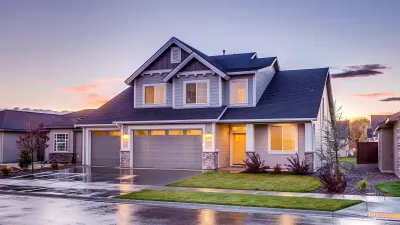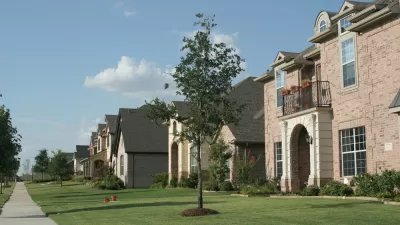Greg Hanscom at Grist asks, if, as polls say, so many Millennials want to live in the city, why is the downtown resurgence a trickle rather than a flood?
For one, says Hanscom, the economy killed their momentum. Millennials are waiting it out at home with their parents:
"There are other factors that have slowed down the great urban migration that predate our recent economic woes: Crime rates are down nationwide, but that has done little to diminish the perception that cities are dark, violent places. Poverty, addiction, and blight still haunt many urban centers. Then there are the kids. The Millenials aren't the first generation of young people to get all stoked about the city. The ones before them continue to pick up and leave as soon as Junior hits school age."
Hanscom has another quite unusual reason why he thinks Americans haven't moved to the city in droves. Read the article to find out.
FULL STORY: Stranded in suburbia: Why aren’t Americans moving to the city?

Planetizen Federal Action Tracker
A weekly monitor of how Trump’s orders and actions are impacting planners and planning in America.

Map: Where Senate Republicans Want to Sell Your Public Lands
For public land advocates, the Senate Republicans’ proposal to sell millions of acres of public land in the West is “the biggest fight of their careers.”

Restaurant Patios Were a Pandemic Win — Why Were They so Hard to Keep?
Social distancing requirements and changes in travel patterns prompted cities to pilot new uses for street and sidewalk space. Then it got complicated.

DC Area County Eliminates Bus Fares
Montgomery County joins a growing trend of making transit free.

Platform Pilsner: Vancouver Transit Agency Releases... a Beer?
TransLink will receive a portion of every sale of the four-pack.

Toronto Weighs Cheaper Transit, Parking Hikes for Major Events
Special event rates would take effect during large festivals, sports games and concerts to ‘discourage driving, manage congestion and free up space for transit.”
Urban Design for Planners 1: Software Tools
This six-course series explores essential urban design concepts using open source software and equips planners with the tools they need to participate fully in the urban design process.
Planning for Universal Design
Learn the tools for implementing Universal Design in planning regulations.
Heyer Gruel & Associates PA
JM Goldson LLC
Custer County Colorado
City of Camden Redevelopment Agency
City of Astoria
Transportation Research & Education Center (TREC) at Portland State University
Camden Redevelopment Agency
City of Claremont
Municipality of Princeton (NJ)





























